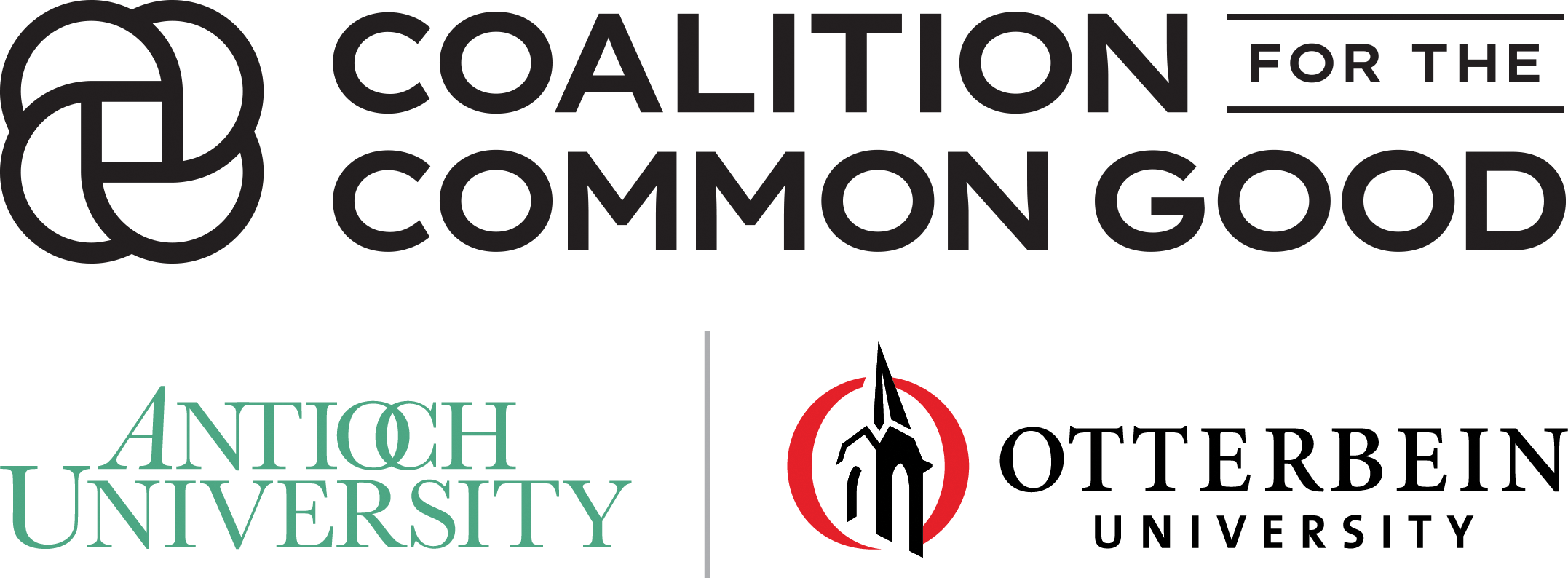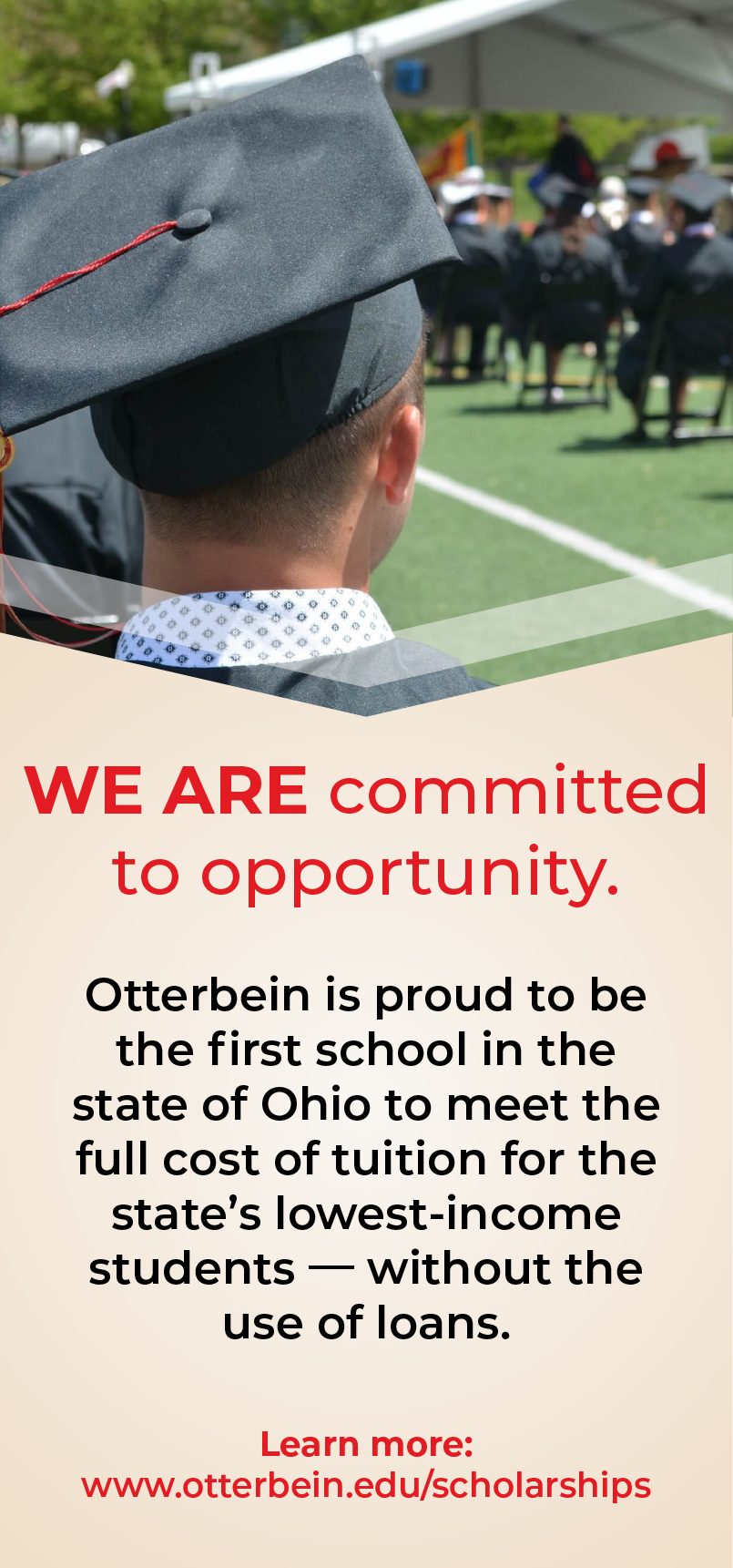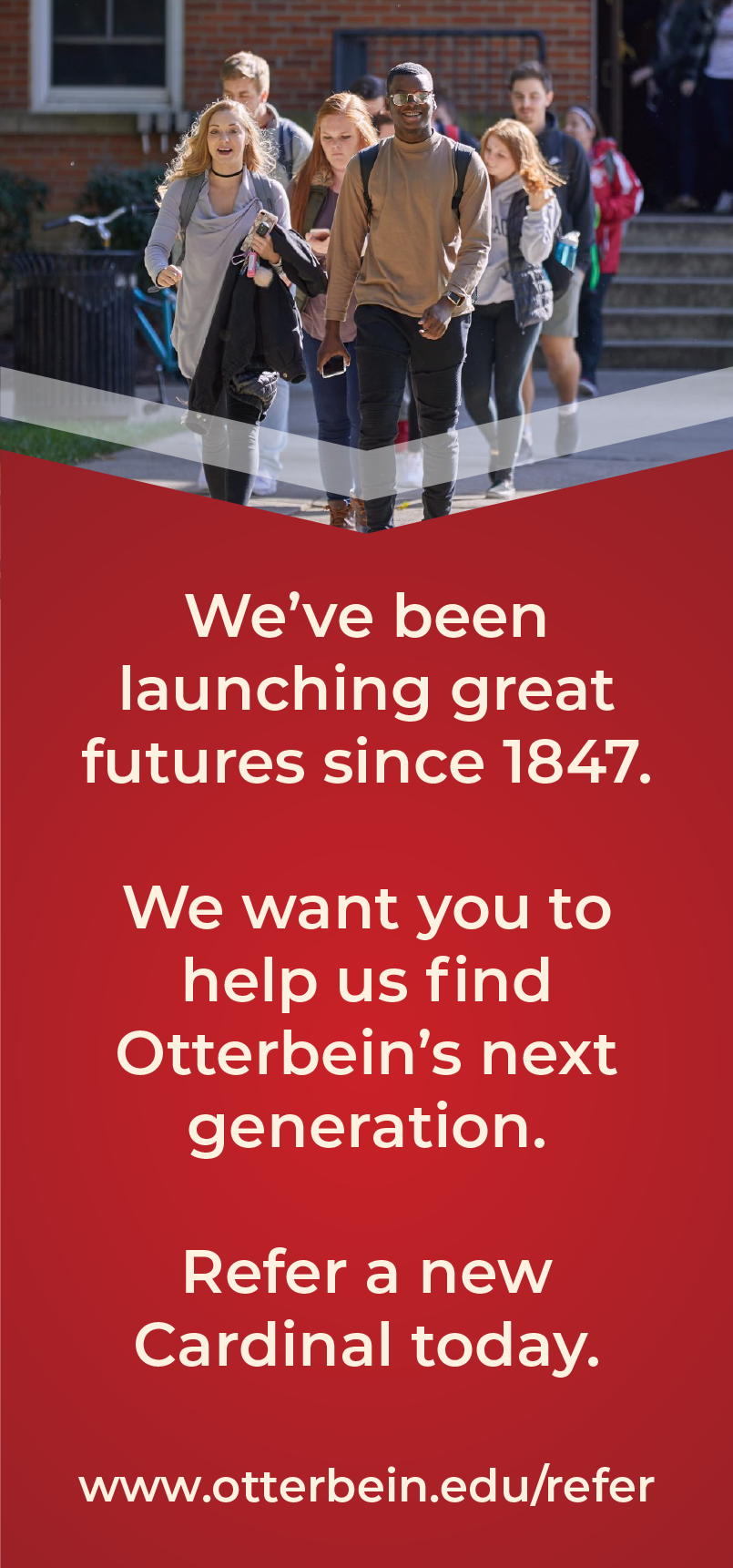The Coalition is truly something new.
A national system, unbound by geography, increasing access to a life-changing education.
Since Otterbein announced the creation of the Coalition for the Common Good (CCG) in August 2023, we have heard many positive comments, especially from the central Ohio business community, and a few questions and concerns. We’ve pulled together some of the most common questions to answer here. Before I jump into the Q&A, however, I want to address a few of the really wild rumors that we have heard as well.
It is important to understand that the CCG leadership isn’t reaping benefits through the creation of the system. All the CCG leaders, drawn from the leadership teams of Otterbein and Antioch Universities, serve as volunteers. No one is paid a salary or a bonus or any renumeration for their role in the CCG. Also, no faculty or staff positions have been eliminated as a result of the Coalition and no academic programs are being discontinued. The Coalition for the Common Good has been created to generate enrollment growth for both co-founding institutions and for future members. Now let’s get to the questions.
Why is Otterbein doing this?
Higher education is at a crossroads. The public is losing confidence in higher education, both due to concerns about rising costs and a national media that thinks the 100 most competitive universities accurately represent higher ed in America. The pool of traditional age (18- to 22-year-old) students is rapidly declining, but the number of colleges is not; Ohio has 194 approved higher education institutions. The solution to not having enough traditional age undergraduates is to focus on adult and graduate learners, however Otterbein is structured to best serve traditional undergraduates. Enrollment growth becomes possible through our work with Antioch and the Coalition.
The Coalition is truly something new. A national system, unbound by geography. The first system to align around a cause, increasing access to a life-changing education. The CCG will allow Otterbein to expand our excellent Graduate Nursing and Health and Sport Science programs to learners in California, Washington, and on the East Coast. It brings new academic programs to central Ohio, like Antioch’s Clinical Mental Health Counseling program that helps to meet the growing need for qualified counselors in Ohio and provides additional mental health resources to our undergraduate students.
Another benefit presented by the CCG is the opportunity to use the resources and faculty expertise of two universities to meet the workforce development needs of central Ohio employers. The CCG can directly assess the needs of employers and respond with certificates and stackable credentials, undergraduate degree completion and advanced degree opportunities that can be offered in modalities that meet the needs of both the employer and their employees.
Additionally, all Otterbein alumni, faculty and staff receive a 15% discount on tuition when they enroll in an Antioch University graduate program.
Why did you select Antioch University as your partner?
Antioch University helped develop the “university without walls” model of graduate and adult learner education, with expertise in offering classes as low-residency, in person, or online. With campuses in California, Washington, Ohio, and New Hampshire, Antioch has a national footprint. Because of the complimentary nature of our curriculum – only the Master of Business Administration and Master of Education are offered by both schools — the CCG immediately offers enrollment growth opportunities as we bring existing programs to new markets.
It has been amazing to watch how the Otterbein and Antioch faculty have come together to plan for these growth opportunities. The faculty have shown deep appreciation of the expertise that their new colleagues are bringing to the work we do. The enthusiasm has been incredible to see.
Why is Otterbein getting rid of our graduate programs?
By moving our graduate programs to the Coalition to be operated by Antioch University, Otterbein will be able to focus on the thing we do best: providing a life-changing education to traditional-age undergraduate students. As mentioned above, this move allows Otterbein’s highly regarded graduate programs to serve students across the country rather than just in central Ohio. It is a mistake to think of these program transfers as “getting rid of’ our graduate programs. The curriculum for Otterbein programs will remain the curriculum after the programs transfer. Otterbein faculty are likely to continue to teach in the programs after they transition, and in fact several Otterbein faculty members are joining Antioch University to run the programs once they transfer.
Antioch is investing in a new Graduate School of Nursing and Health Professions in order to offer these programs. They are also undergoing review by the Ohio Department of Higher Education and our accreditor, the Higher Learning Commission, as well as any specialized accreditation required to offer these programs. The academic rigor of the existing programs will be maintained once they are transferred to Antioch. The alumni of our graduate programs will soon be able to call new alumni of these programs across the nation “friends.”
Why is there so much emphasis on social justice?
Unfortunately, the term “social justice” has taken on a politicized meaning — lionized on one side and demonized by the other — that impacts how people respond. The Coalition for the Common Good is committed to education for a more just society. We believe in the power of education to change lives, to improve our communities, and to defend and protect our democracy. It is important, however, for our community to understand Otterbein’s past as an insight to our future. Founded by abolitionists in 1847, Otterbein has always put doing what is right over doing what is popular.
Truth be told, when Otterbein, at our founding, enrolled women in the same academic program as men and hired women faculty, that was a radical, innovative idea. When we enrolled African American students before the Civil War, that was a radical, innovative idea. When we enrolled students from Sierra Leone in 1896, that was a radical, innovative idea. When Otterbein enrolled Japanese American students from internment camps during World War II, that was a radical, innovative idea. When Otterbein created its Integrative Studies general education program in 1968, that was a radical, innovative idea. In the late 1960s and early ’70s, when Otterbein adopted a shared governance model with a University Senate comprised of students, faculty, and staff and made students voting members of the Board of Trustees, that was a radical, innovative idea. And the founding of the Coalition for the Common Good, a national system of private, non-profit universities, with a shared graduate and adult learner program is a radical, innovative idea. History has ultimately endorsed all these radical, innovative ideas and we believe that time will prove the CCG is the right thing to do as well.
What is the business model? How does Otterbein benefit?
Imagine the financial security of Otterbein as a four-legged stool, in which each leg bears some of the responsibility for creating long-term stability. The CCG has four legs that support our financial stability.
- Traditional undergraduate enrollment – The costs and revenues associated with our traditional undergraduate enrollments are not shared. The CCG provides a number of benefits to Otterbein undergraduate students such as Graduate Early Admission Pathways that will strengthen our undergraduate enrollments.
- Graduate/Adult programs – This is the centerpiece of the Coalition and is expected to be a major driver of expanded enrollment and revenue growth that will be shared among the affiliate members.
- Strategic Initiatives and Business Partners – The Coalition for the Common Good can provide the necessary infrastructure, course design, and modalities to meet the needs of employers in each member’s community, delivering stackable credentials, certificates, adult degree completion and graduate degrees.
- Support Services Organization (SSO) – The Coalition has created an SSO that will allow the identification of efficiencies in non-academic areas.
What is the difference between Antioch University and Antioch College?
While Antioch University and Antioch College have a shared history, they are very different institutions. Antioch University is one of the nation’s leading providers of low-residency and online graduate and adult learner programs with campuses in Los Angeles, Santa Barbara, Seattle, Keene, NH, and Yellow Springs, OH. The University has adult degree-completion programs, but does not serve traditional age undergraduates. It offers an array of master’s and doctorate programs in areas like Clinical Mental Health Counseling, Leadership and Change, Education, Non-profit Management and Business Administration. Antioch College has a separate, historic campus in Yellow Springs, and licenses the use of the name “Antioch” from the University.
How do Otterbein undergraduates benefit from the Coalition?
The Coalition provides Otterbein undergraduates with many exciting new opportunities. We have developed five Graduate Early Admission Pathways (GEAPS) for Otterbein undergraduates to Antioch graduate programs. The GEAPS allow an Otterbein undergrad to take three (3) graduate classes their senior year, at no extra cost, and students then apply those nine (9) credits to both their Otterbein undergraduate degree and their Antioch graduate degree, reducing the time and cost to earn their master’s degree. Five additional GEAPS are under review this semester.
Approved Graduate Early Admission Pathways:
- Art Therapy
- Clinical Mental Health Counseling
- Human Services Administration
- MBA
- Non-profit Management
- Athletic Training
- Exercise and Health Sciences
- Healthcare Administration
- Individualized Studies in the Humanities
- Individualized Studies in the Social Sciences
- Athletic Training
- Exercise and Health Sciences
- Healthcare Administration
- Individualized Studies in the Humanities
- Individualized Studies in the Social Sciences
GEAPS in development:
We are also building special “Study Away” programs that will allow Otterbein students to take courses at one of Antioch’s campuses as part of their undergraduate course of study. These immersive experiences will range in length from several days up to an entire semester.
Prospective undergraduate students tell us they find the idea of the Coalition to be very exciting and that it increases the likelihood of their choosing to enroll. In a survey of high school seniors conducted in October 2021, 83% reported that an alliance like the CCG would increase their interest in a member school; 44% reported that it would “significantly” increase their interest. Students identified increased career and alumni networks, the opportunity to take courses at member institutions and accelerated pathways to a graduate degree as the most important benefits they seek, all of which the CCG now provides.
What happens if things do not work out?
Otterbein reserves the right to withdraw from the Coalition after three years, but we do not see that happening. We are already seeing positive outcomes of the Coalition, especially the work we are doing with local employers to meet their workforce development needs. All new initiatives need time to fully develop, and the CCG is no different, but the early outcomes are all positive.
Rather than being worried about failure, the CCG is looking to expand. A number of universities and colleges have reached out to the Coalition to learn more. We are building towards the day when the Coalition has three, four, or even more members.
What does the future hold for Otterbein?
Otterbein ranks in the top 20 in the U.S. News and World Report’s Best Colleges rankings for Midwest Regional Universities, along with recognition for our excellence in undergraduate teaching and as one of the region’s most innovative universities. We will continue to build on those strengths to provide our students with an affordable, life-changing education. We continue to believe that our ability to educate students that other universities don’t think belong in college (just like we believed in educating women in 1847) is the right thing to do. Non-profit universities are expected, as part of our non-profit status, to support the common good. The Coalition allows us to do that on a much broader scale.


Jefferson Blackburn-Smith is the Executive Vice President for Strategic Initiatives, Otterbein University, and Vice President for Communications, Coalition for the Common Good. He has developed and implemented new partnerships with Central Ohio school districts and community colleges to create new opportunities to underserved populations to earn a higher education degree.



